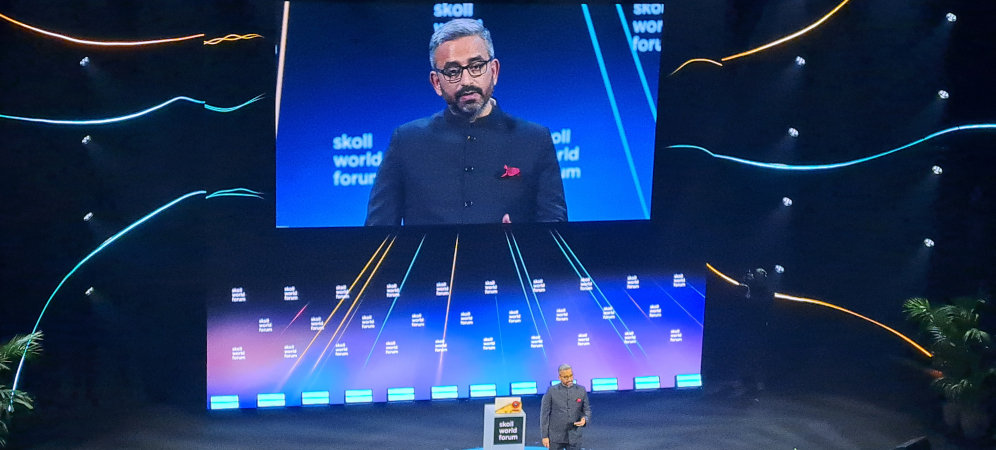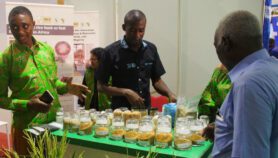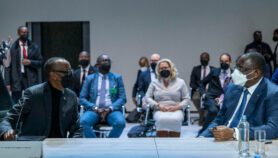By: Ruth Douglas
Send to a friend
The details you provide on this page will not be used to send unsolicited email, and will not be sold to a 3rd party. See privacy policy.
[OXFORD] Spanning 95 kilometres, the six-lane Mumbai-Pune Expressway is one of India’s busiest roads, notorious for road traffic collisions. In 2016, these resulted in 151 deaths.
But in the last seven years, fatalities on the expressway have more than halved following the introduction of the “zero fatality corridor” pioneered by SaveLIFE Foundation, an NGO dedicated to reducing road deaths in the country.
Since its introduction in 2016, the programme, which involves a range of interventions around road engineering, police enforcement, driver behaviour change, and trauma care, has been replicated across India, earning the NGO’s founder and CEO Piyush Tewari numerous accolades, including the 2024 Skoll Award for Social Innovation.
Now, the investment banker-turned-social entrepreneur is setting his sights on extending the model worldwide.
“The solution fundamentally is to create a cohesive suite of interventions that can be applied on any road in the world, with the intention of drastically cutting road fatalities,” Tewari told SciDev.Net in an interview at the Skoll World Forum in Oxford, UK, last week (Thursday).

Piyush Tewari, CEO of India’s SaveLIFE Foundation speaking at the Skoll Wolrd forum where he recieved the the 2024 Skoll Award for Social Innovation. Photo by Ruth Douglas/SciDev.Net
One such intervention used AI to identify conflict points, such as at road intersections, where vehicles could potentially collide. The foundation then worked with the Indian government to redesign intersections to make them safer, says Tewari, who partnered with the Ministry of Road Transport and Highways and other agencies to roll out the initiative nationally.
“Now that this is scaling up in India, we can start focusing on some of the other regions of the world where this problem is quite exacerbated,” he says. As well as working to expand it to neighbouring Bangladesh and Thailand, the Foundation is looking further afield to Kenya and Zimbabwe.
“Both are countries that have a very high amount of highway development happening at this point and we feel that this is a great time to intervene to prevent any future massive loss of life that might occur with a wider network of highways and expressways,” Tewari explains.
“If we bring in the suite of interventions right now, we can pre-emptively reduce fatalities.
“And once we’re able to implement this in these geographies, we hope to learn from it. And once we’ve learned from it, we then intend to scale this to the entire world.”
According to the World Health Organization, there are 1.9 million road traffic deaths a year globally and nine out of ten of these fatalities are in low- and middle-income countries.
India holds about one per cent of the world’s vehicle population, but accounts for about six per cent of all road traffic incidents, analysis shows.
For Tewari, the motivation for changing this is personal. In April 2007, his cousin, Shivam, died in a road traffic incident, aged 17.
“Shivam was more than a little cousin for me … To me he was like a son,” Tewari told an awards ceremony at the Skoll World Forum, describing the boy who had lost his own father at the age of two.
Recalling the moment he found out about Shivam’s death, he said: “I felt sick to my stomach. I couldn’t even drive. I left my car behind the bus stop and took a taxi home.”
This family tragedy prompted Tewari to delve deeply into what was behind India’s road deaths crisis.
“What started as a process to respond to [Shivam] not getting help on the roads eventually evolved into an institution that has very deep knowledge and understanding about what is causing this in the first place.
“What we’ve discovered is that, while there are of course surface-level issues around how people drive, what the roads are, and so on, there are very deep-seated, deep-rooted systemic issues also that surround this.”
One of the problems, says Tewari, is around “ownership”.
“It’s a massive public health issue, but typically transport doesn’t fall into the realm of public health, so who takes charge of it?
“There is a significant need to create a platform where different bodies can come together.”
The Foundation was instrumental in bringing about a Good Samaritan Law in India, passed in parliament 2019, aimed at ensuring that passersby can stop and help, while being protected from the hassle of ensuing legal action – a fear that Tewari believes was stopping injured people, like his cousin, from getting life-saving help quickly.
Now the organisation is leading a campaign for a Right to Trauma Care law in India, to ensure that every victim has the highest possible chance of survival, with guaranteed access to emergency response, transportation, and hospital care.
“Over the last many years, India has seen a fair amount of improvement in ambulance services, there are numbers you can call for help, even hospitals have improved,” Tewari explains.
“But fundamentally what trauma care is about is to link up all of these different things to ensure a seamless chain of survival for an injured person. And what we intend to do with this legislation is to create that chain.”
The changes he envisages would mean that “even a three year old would know which number to call for help, rescue teams would not wait for equipment, and ambulances would not just transport the victim, but actually sustain life,” Tewari said at the awards ceremony.
“These are things that we take for granted in the West but are severely fractured in the global South.”
He believes these changes can and must be made rapidly.
“This is achievable in the next ten to 15 years,” he told the forum. “And not just in India, but in other low- and middle-income countries as well.”
This piece was produced by SciDev.Net’s Global desk.














